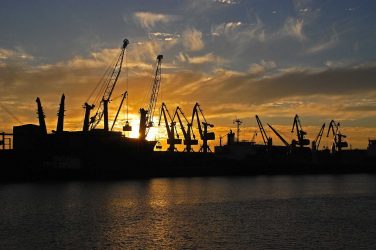Brazil’s road to global influence provides the compound meters for David R. Mares and Harold A. Trinkunas’ Aspirational Power: Brazil on the Long Road to Global Influence. Aspirational Power is a systematic treatment of the global order and an explanation of why Brazil remains a ‘rule taker’.
The book reads like Heitor Villa Lobos’s symphony O Trenzinho do Caipira, rumbling through the melodic contours of repeated national efforts to scale the heights of development and international leadership only to plunge into the valley of misfortune.
Mares and Trinkunas offer a comparable framework for studying emerging powers, the obstacles they face and decisions they take to climb the ladder of global power.
They apply the founding principles and myths associated with the so-called liberal international order to their case study, but add a compelling analytical twist to suggest that ‘Brazil is […] a poster child for learning about soft power’ (17).
For Mares and Trinkunas, soft power is the expression of the international ‘attraction of a state’s domestic model’; such magnetism is dependent upon a stable set of political, economic and social institutions and policies that can reproduce and expand national power over time.
The authors catalogue Brazil’s repeated failures to establish a stable domestic order that can project soft power through global governance. The challenge for Mares and Trinkunas is to explain how the interaction between international opportunities and national leadership decisions account for Brazil’s episodic moments of emergence followed by crisis.
International security poses a distinct set of challenges for an emerging power to become a ‘rule maker’. For Brazil, these are complicated by the foreign ministry’s unwillingness to brandish the swords of coercive diplomacy to shape the global order.
Brazilian diplomacy requires national economic and social development that inspires others, while also generating the resources necessary for upgrading ‘hard power’ assets to deepen the country’s role in collective security initiatives.
Mares and Trinkunas argue that the exercise of soft power is contingent on military force capabilities, but Brazil has not yet achieved a level of economic and military power that could serve as the basis of expanding its contributions to the international security domain without ‘eroding domestic support for its policy of “grandeza” [realizing the enormous potential for development given the country’s remarkable natural resources] by assuming excessive costs or undermining its claims to speak for the abused South in the international order’ (106).
Brazil’s increasing participation in peacekeeping efforts, including the United Nations Stabilization Mission in Haiti (MINUSTAH) and the maritime deployment of the United Nations Interim Force in Lebanon (UNIFIL), demonstrates its constructive, albeit limited, contributions to collective security efforts and authenticates the country’s increasing stake in global governance.
Despite these contributions, Mares and Trinkunas contend that ‘persuading other states to give soft power a chance has been a persistent difficulty for Brazil in the international security domain’ (87).
The authors may be right, but they do not put their proposition to the test by assessing Brazil’s most ambitious initiative to contribute to international security. On 17 May 2010, the Brazilian government teamed with Turkey to broker the nuclear fuel exchange accord with the Iranian government.
The US government immediately rejected this trilateral initiative, but it did prompt Washington to renew efforts to double down on sanctions against Tehran. Both Brazilian diplomacy and the sanctions shared the same goal of preventing the weaponization of Iran’s nuclear fuel cycle activities.
Unfortunately, the authors do not provide a rigorous assessment of this case to validate their conclusion that Brazil’s soft power diplomacy falls short of contributing to game-changing international security initiatives.
Despite Washington’s rebuff, Brazilian diplomacy and the trilateral accord demonstrated that there was a road to reaching agreement with Tehran to curb the weaponization of Iran’s uranium enrichment program.
This experience raises a critical question for Mares and Trinkunas, but one they do not answer: did Brazil’s non-proliferation diplomacy contribute to bringing about the necessary conditions for framing the Joint Comprehensive Plan of Action (JCPOA) negotiated by the P5+1 and Iran in 2015?
Aspirational Power does provide a well-argued appraisal of Brazil’s economic development diplomacy during recent decades. The authors describe the Brazilian government’s critical leadership related to the Declaration on the Agreement of Trade-Related Intellectual Property Rights (TRIPS) and Public Health in 2001 to confront the HIV/AIDs epidemic by pressuring multinational pharmaceutical firms with compulsory licensing to lower prices for treatment.
Brazil partnered with South Africa, India and Thailand to make the case for patient rights under the TRIPS agreement. These collective diplomatic efforts eventually flipped the US position to adopt national security and public health-related exceptions to the TRIPS intellectual property protections.
Yet, while the authors present this case as emblematic of the possibilities of Brazilian international trade diplomacy and soft power, they do not apply the same logic to an analysis of the ‘Cotton Dispute’ at the World Trade Organization (WTO), which shattered the foundational myth underlying the US global leadership of trade liberalization.
Mares and Trinkunas explore Brazil’s strategies for creating a fair international trading system by establishing the Common Market of South America (Mercosur) and exercising leadership in the WTO, including electing its ambassador, Roberto Azevedo, as Director-General.
Evaluation of these strategies requires analysis of Brazil’s struggle to lessen the world market distortions caused by US and European Union agricultural policies and programs.
Mares and Trinkunas examine Brazilian leadership of the G20 member-states at the WTO Cancun Ministerial negotiations in 2003, but they do not offer a synthesized interpretation anchored to the country’s pivotal role in the TRIPS negotiations over public health exceptions and the country’s decision to openly confront the EU’s sugar program and the US cotton production subsidies and agricultural commodity export credit guarantees in the months leading up to the Cancun meeting.
They highlight Brazil’s representation of both commodity exporting and subsistence agriculture member-states at the WTO, but do not weigh the extent to which Brazil’s trade diplomacy shaped the global political economy through its leadership at the WTO.
What Mares and Trinkunas do offer is an indispensable evaluation of Brazil’s rocky road to global influence. The authors effectively explain why Brazil has not yet consolidated a domestic economic and political foundation for gaining influence, paying the costs and creating the opportunities associated with a successful path toward global leadership.
Their book provides a careful, even sympathetic, account of Brazil’s national faults and inability to consolidate a sustainable process of economic development under democracy to finance and inspire the national struggle to make the rules of the global order. The authors even offer up a menu of national policy options that Brazilian foreign policymakers and scholars should consider and debate (177-79).
Aspirational Power raises fundamental questions about the global order and Brazil’s place in it. It offers a comprehensive and comparable analytical framework for soft power that deserves expanded scholarly application and debate.
Mares and Trinkunas may underestimate the analytical importance of the cases of the trilateral nuclear fuel exchange accord and the ‘Cotton Dispute’ at the WTO, but their book is a study of soft power in the global order that will likely become a central work of Brazilian foreign policy scholarship for decades to come.
Mark S. Langevin is Director of the Brazil Initiative and Research Professor at the Elliott School of International Affairs, George Washington University. He has a PhD in political science and an MA in Latin American Studies from the University of Arizona, and researches and writes extensively on Brazilian energy policymaking and US-Brazil relations.
This article appeared originally on the LSE Review of Books.













